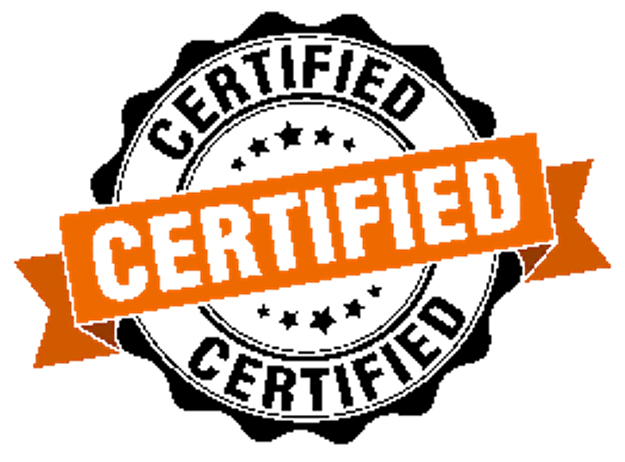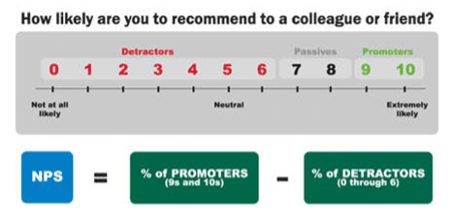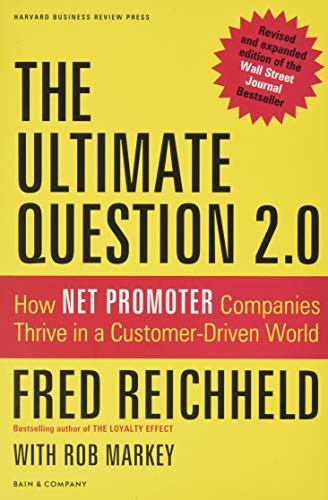Net Promoter Score
Net Promoter Score is the worldwide standard for measuring customer satisfaction. It's a scale from -100 to +100 with 10 the current average for a US company. 100 is the best possible, -100 the worst possible.
Net Promoter Score (NPS®) has become the world standard for measuring customer satisfaction levels. Rather than saying we have the "Best" service we use a 3rd party company to automate follow up messages to our customers including getting feedback and tracking NPS®. CEO Juice is an independent A.I. company with an audited process where every step is controlled by them, the numbers cannot be changed even if we show our customer gave us a low score in error. NPS® is a scale of -100 to +100 and is based on the single question "How likely are you to recommend us to a friend or colleague." Like revenue or profit it needs to be for a period of time.
Net Promoter, NPS, and Net Promoter Score are trademarks of Satmetrix Systems, Inc., Bain & Company, and Fred Reichheld

The Office Works Customer Satisfaction Score: 97.1
CEO Juice calculates Net Promoter Scores for the copier / imaging channel in North America and “certifies” the numbers as accurate. The process is automated by us and the numbers cannot be changed by our clients.
NPS - Net Promoter Score, Overview
The Ultimate Question:
How Likely is it that you would recommend our company to a friend or colleague?
If you Google "Net Promoter Score," you will see that most major companies are now using this metric to measure customer satisfaction.
It starts with the book "The Ultimate Question" by Fred Reichheld, Amazon link here: http://www.amazon.com/Ultimate-Question-Revised-Expanded-Customer-Driven/dp/1422173356/ref=pd_sim_b3.
In trying to summarize the book, it says profits fall into two categories, good profits and bad profits.

Bad Profits
Bad profits come from charges like late fees, additional baggage charges, or when sales reps push overpriced or inappropriate products onto trusting customers.
Good Profits
Good profits are when a company delights its customers so much, they not only willingly come back for more, but tell their friends and colleagues. Good profits are needed for continued growth and have a dramatic impact on long term revenues. The book contains many examples and support for this.
In the book, the challenge was being able to tell which type of profits you had, as it doesn’t show on your financials. It then goes into some detail to explain ways they tried to measure good versus bad profits and finally settled on this one “Ultimate Question” - How likely is it that you would recommend our company to a friend or colleague? On a scale of 0 to 10...10 being extremely likely.
Responses fall into 3 categories: Promoters, Passive, or Detractors
Promoters answer 9 or 10, Passive are 7 or 8, and Detractors are 6 and under.
Then, to simplify things, they wanted a number they could use to measure and came up with the Net Promoter Score (NPS). NPS is to customer relationships what a company’s net profit is to financial performance.
The Net Promoter Score is the percentage of promoters minus the percentage of Detractors. If you asked 100 customers the Ultimate Question; 30 answered 9 or 10 and 20 answered 6 or less, then your NPS would be 10.
See the Top 10 Listing here:
https://www.ceojuice.com/nps/awards/top10












